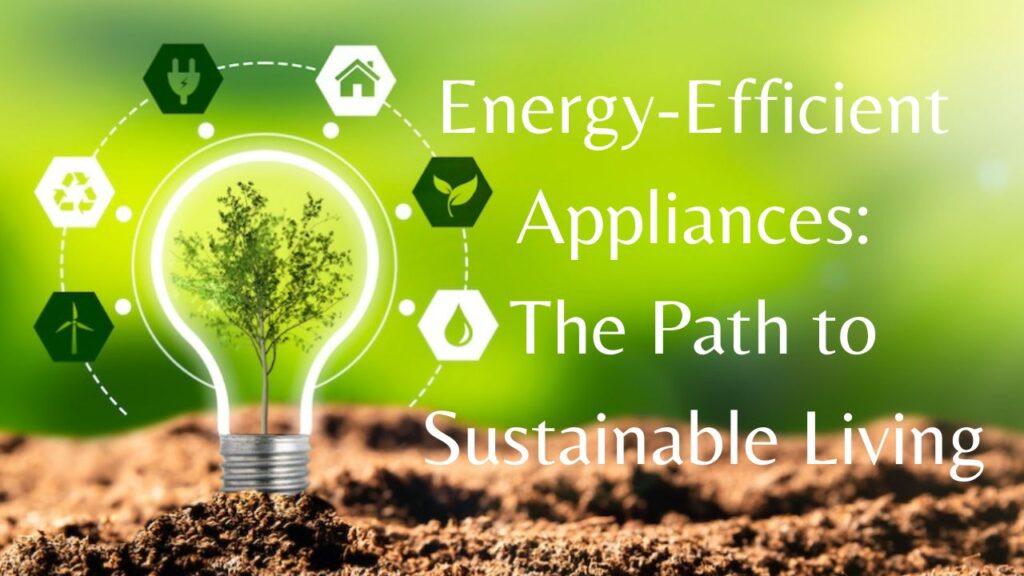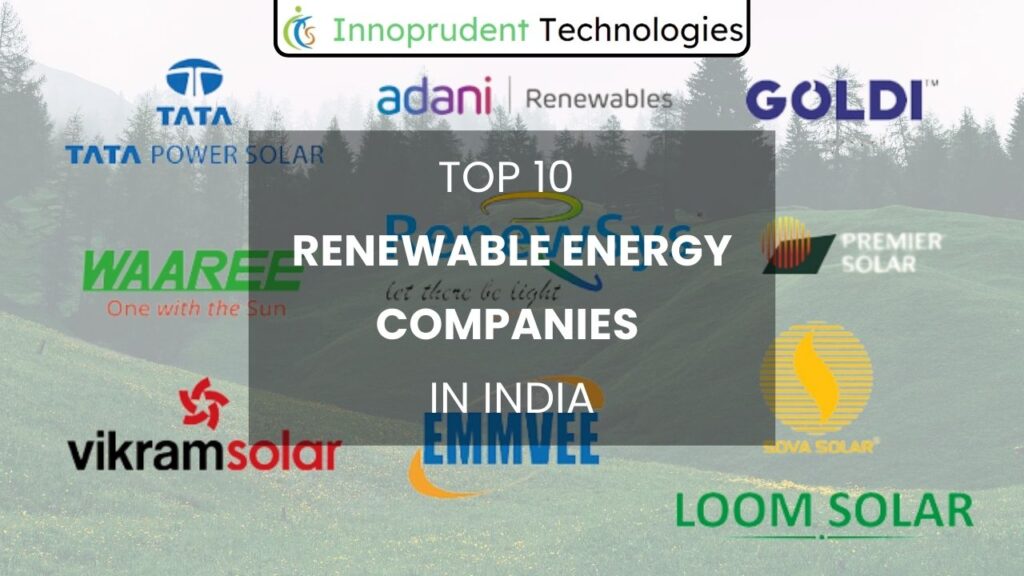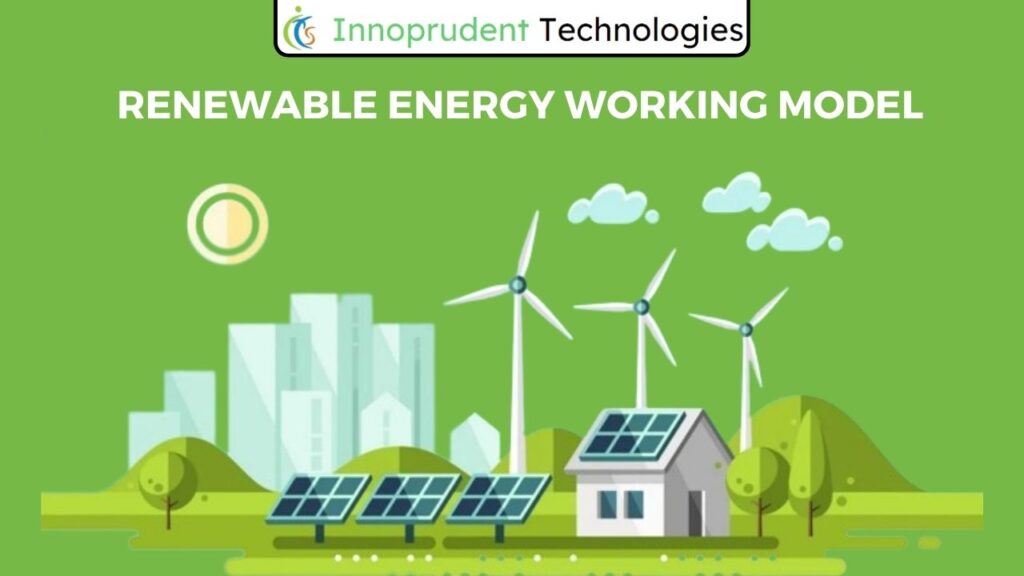Are you tired of skyrocketing energy bills and concerned about your environmental footprint? Imagine a world where your appliances not only make your life easier but also help save the planet and put more money back in your pocket.
Welcome to the world of energy-efficient appliances, where sustainability meets affordability, and where every household can be a powerhouse of eco-conscious living.
In this article, we will embark on an exciting journey to explore the fascinating realm of energy-efficient appliances, uncovering how they can transform your home into a sustainable sanctuary while revolutionizing your lifestyle.
Understanding Energy Efficiency
Before we dive into the benefits of energy-efficient appliances, let’s first understand what energy efficiency means. Energy efficiency refers to the ability of an appliance to perform its function while using as little energy as possible. In other words, it’s about getting the most out of the energy you put in. Energy-efficient appliances are designed to minimize energy waste, making them a great choice for those who want to reduce their carbon footprint and save on utility bills.
Why Energy Efficiency Matters
Energy efficiency is vital for several reasons. Firstly, it helps reduce greenhouse gas emissions. Most of the energy we use in our homes comes from burning fossil fuels like coal, oil, and natural gas. When these fuels are burned, they release carbon dioxide (CO2) and other pollutants into the atmosphere, contributing to global warming and air pollution. Energy-efficient appliances consume less energy, which means fewer greenhouse gas emissions, and ultimately, a healthier planet.
Secondly, energy efficiency can save you money. When you use appliances that are energy-efficient, your energy bills are lower. Over time, these savings can add up significantly. You’ll have more money in your pocket to spend on other things you enjoy.
The Benefits of Energy-Efficient Appliances
Now that we understand why energy efficiency is crucial let’s explore the many benefits of using energy-efficient appliances:
Lower Energy Bills: One of the most obvious advantages of energy-efficient appliances is that they consume less energy. This results in reduced energy bills. You’ll notice a significant difference in your monthly expenses when you start using energy-efficient appliances.
Environmental Benefits: Energy-efficient appliances help decrease the demand for energy, which, in turn, reduces the need for more power plants and their associated emissions. This helps combat climate change and reduces the environmental impact of energy production.
Longer Lifespan: Energy-efficient appliances are often built with high-quality materials and advanced technology, making them more durable and longer-lasting. While they may have a slightly higher upfront cost, you’ll save money in the long run because they need fewer repairs and replacements.
Enhanced Performance: Energy-efficient appliances are designed to perform just as well as, if not better than, their less efficient counterparts. You won’t have to sacrifice performance to save energy and money.
Reduced Heat Production: Some appliances, like older refrigerators and incandescent light bulbs, can produce a lot of heat when they operate. This can make your home less comfortable and increase your cooling costs. Energy-efficient appliances produce less heat, helping to maintain a more pleasant indoor environment.
Reduced Water Usage: In addition to saving energy, energy-efficient appliances, such as dishwashers and washing machines, often use less water. This not only conserves a precious resource but also reduces the energy needed to heat the water.
Government Incentives: Many governments offer incentives, such as tax credits or rebates, to encourage the use of energy-efficient appliances. These incentives can further reduce the initial cost of these appliances.
Energy Star Certification: Look for the Energy Star label on appliances when shopping. This certification signifies that the product meets strict energy efficiency guidelines set by the U.S. Environmental Protection Agency. Energy Star appliances are recognized for their exceptional energy-saving performance.
Improved Air Quality: By reducing greenhouse gas emissions and air pollutants, energy-efficient appliances contribute to better air quality, which is essential for our health and the health of our planet.
Types of Energy-Efficient Appliances
Energy-efficient appliances come in various types and are available for almost every area of your home. Here are some common examples:
Energy-Efficient Light Bulbs: LED and CFL (compact fluorescent) light bulbs use significantly less energy than traditional incandescent bulbs and last much longer.
Energy-Efficient Refrigerators: Newer refrigerators are designed to be more energy-efficient. They have better insulation and temperature controls, reducing energy consumption.
Energy-Efficient Dishwashers: These appliances use less water and energy while still effectively cleaning your dishes.
Energy-Efficient Washing Machines: Front-loading washing machines are known for their energy efficiency, as they use less water and require less energy to operate.
Energy-Efficient Water Heaters: Tankless water heaters heat water on demand, eliminating the need to keep a large tank of water hot all the time.
Energy-Efficient HVAC Systems: Heating, ventilation, and air conditioning (HVAC) systems with high-efficiency ratings help maintain comfortable indoor temperatures while using less energy.
Energy-Efficient Electronics: Many modern electronics, such as televisions and computers, come with energy-saving features and are designed to use less power when in standby mode.
Energy-Efficient Cooking Appliances: Induction cooktops and convection ovens are examples of kitchen appliances that are more energy-efficient than traditional alternatives.
Tips for Choosing and Using Energy-Efficient Appliances
When shopping for energy-efficient appliances, consider the following tips to make the best choices:
Look for the Energy Star Label: As mentioned earlier, the Energy Star label is a reliable indicator of energy efficiency.
Compare Energy Ratings: Pay attention to the EnergyGuide label, which provides information about an appliance’s energy consumption and how it compares to similar models.
Consider Size and Capacity: Choose an appliance that suits your needs without being oversized, as larger appliances typically consume more energy.
Maintain Your Appliances: Regular maintenance can help ensure your appliances continue to operate efficiently. Clean or replace filters, check for leaks, and keep coils and vents clear of dust and debris.
Use Appliances Wisely: Follow the manufacturer’s guidelines for usage. For example, only run your dishwasher and washing machine with full loads, and avoid overloading your refrigerator, which can reduce its efficiency.
Adjust Thermostats: Set your thermostat to energy-saving temperatures and use a programmable thermostat to adjust settings when you’re not at home.
Unplug When Not in Use: Unplug electronics and appliances when they are not in use to prevent “phantom” energy consumption.
The Cost of Energy-Efficient Appliances
It’s true that energy-efficient appliances can be more expensive upfront than their less efficient counterparts. However, it’s essential to look at the bigger picture. The initial cost is just one aspect of the equation. Over time, the savings on your energy bills, as well as the longer lifespan of these appliances, can more than make up for the higher purchase price.
Additionally, as mentioned earlier, government incentives and rebates are often available to help offset the initial cost of energy-efficient appliances. These incentives can make the decision to invest in energy-efficient technology even more attractive.
Making the Switch to Energy-Efficient Appliances
If you’re convinced that energy-efficient appliances are the way to go for a more sustainable and cost-effective lifestyle, here are some steps to help you make the switch:
Assess Your Needs: Start by identifying the appliances that need replacement or upgrading. Prioritize based on the potential for energy savings and your budget.
Research: Take your time to research different models and brands. Consider factors like energy efficiency, size, capacity, and additional features that may suit your needs.
Check for Incentives: Look into government incentives or local rebates that may be available when purchasing energy-efficient appliances.
Plan Your Budget: Determine your budget and consider financing options if needed. Remember that the long-term savings will offset the initial cost.
Proper Disposal: When replacing old appliances, dispose of them responsibly. Many communities have recycling programs or offer options for safely disposing of appliances.
Installation: Ensure that your new appliances are installed correctly to maximize their energy efficiency.
Use Wisely: Once your energy-efficient appliances are in place, use them wisely by following the manufacturer’s instructions and making energy-conscious choices in your daily routines.
Find out More Stories
Wrapping up
Energy-efficient appliances are not only a smart choice for your wallet but also a crucial step towards a more sustainable future. They help reduce energy consumption, lower greenhouse gas emissions, save money, and improve the overall quality of life. By making the switch to energy-efficient appliances, you can play a significant role in mitigating climate change and enjoy the benefits of a more environmentally friendly and cost-effective lifestyle. It’s a small change that can make a big difference on the path to sustainable living. So, when it’s time to replace your old appliances, remember to choose energy efficiency and take a step toward a greener and more sustainable future.
Frequently Asked Questions(FAQs)
Q1: What are energy-efficient appliances, and how do they work?
Ans: Energy-efficient appliances are designed to use less energy while performing their intended tasks effectively. They achieve this through advanced technology and improved engineering, reducing energy waste and environmental impact.
Q2: How do energy-efficient appliances help me save money?
Ans: Energy-efficient appliances consume less energy, resulting in lower energy bills. While they may have a higher upfront cost, the long-term savings on energy expenses make them a cost-effective choice.
Q3: Are energy-efficient appliances good for the environment?
Ans: Yes, energy-efficient appliances are better for the environment. They produce fewer greenhouse gas emissions, help conserve natural resources, and reduce air pollution, contributing to a healthier planet.
Q4: Do energy-efficient appliances have a longer lifespan than regular ones?
Ans: Yes, energy-efficient appliances are often built with high-quality materials and technology, which can make them more durable and longer-lasting. This means fewer repairs and replacements over time.
Q5: Are there government incentives for purchasing energy-efficient appliances?
Ans: Many governments offer incentives, such as tax credits or rebates, to encourage the use of energy-efficient appliances. These incentives can help reduce the initial cost of these appliances.




Pingback: Cool Roofs and Cool Pavements: Mitigating Urban Heat Islands - Innoprudent
Pingback: Why Every Business Needs an Energy Audit: Exploring the Benefits - Innoprudent